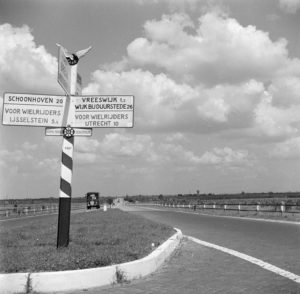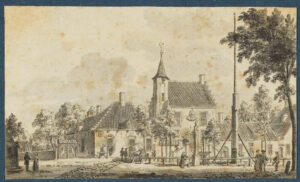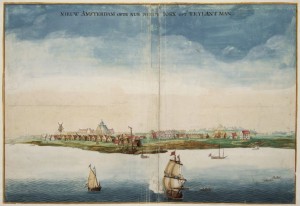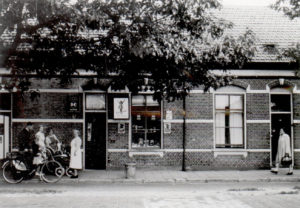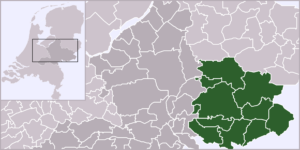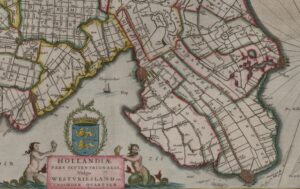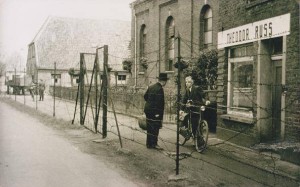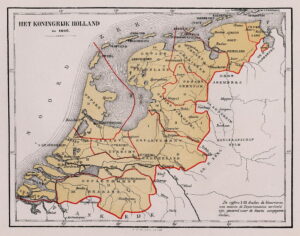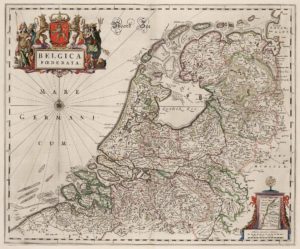Some places in the Netherlands have the same name as other places. This can cause issues during research, if you are looking for your ancestors in the wrong place. See the article about non-unique place names in the Netherlands for an overview. You can also check Van der Aa's gazetteer to see where a place may have been located. … [Read more...]
Non-unique Place Names in the Netherlands
Most places in the Netherlands have unique names. But there are a few cases where places in different locations have the same name. Other towns have slightly different names today, but used the same names before spelling became standardized. This can cause problems, not just because researchers may search in the wrong place, but also because automated processes may link records to the wrong location. Places that occur in more than one location Alphen (North Brabant), Alphen (Gelderland), … [Read more...]
Quick tip – Identical place names in New and Old Netherland
If you are doing in New Netherland, the Dutch colony in what later became New York and the surrounding area, you may come across place names that exist in both the (old) Netherlands and New Netherland. When you come across a place in records and you cannot find the person in the records of that town, consider that perhaps the other place is meant. For example, a New Amsterdam marriage record may refer to a bride from "Vlissingen" without specifying whether that is the town on Long Island or the … [Read more...]
Quick Tip – Did the boundaries change?
Over the past two hundred years, Dutch municipalities have seen many boundary changes. In the past 50 years especially, many smaller municipalities have merged to form larger municipalities. Understanding these boundary changes can help you figure out if your ancestor moved, or if they continued to live in the same place but the municipality changed. For an overview of all municipalities in the Netherlands since 1811 including boundary changes, see the website Gemeentegeschiedenis. Example: … [Read more...]
Quick tip: Difference between Twente and Achterhoek
There are two regions in the east of the Netherlands that often get confused: Twente and the Achterhoek. Twente is the eastern part of the province of Overijssel. Major towns are Enschede, Hengelo, Almelo, and Oldenzaal. The Achterhoek is the eastern part of the province of Gelderland. Major towns are Winterswijk, Groenlo, Lochem, and Zutphen. … [Read more...]
Five Ways to Identify Old Places Names in the Netherlands
When you come across a place of origin in a records, you may not be able to find that town on a modern map. Spellings and names changed. Here are five strategies to find out what place is meant. 1: Check contemporary maps You can look at a map from the period, like in the world atlas by Blaeu from 1665. This shows you the names the towns had in the 1600s. Many people did not move that far so I start by looking at a map of the area where the record was created that mentioned the town. I widen … [Read more...]
Dutch term – Grens
A grens is a border. Municipal borders determined where a couple would register the birth of their child, where they were taxed, where they would apply for a permit. Judicial borders determined which court prosecuted a ciminal, granted a divorce, or appointed a guardian. Borders affected our ancestors' lives. My ancestor Arend Kastein moved across the street and tried to apply for a job as a policeman. But since that street happened to be the Dutch-German border, he needed to be … [Read more...]
Dutch term – Holland
One of the best-known Dutch terms is Holland. Unsurprisingly, it means "Holland." But Holland can refer to different things: Many people abroad use Holland when they mean the country of the Netherlands. For a long time, the Netherlands used it in international communication. Even the Dutch themselves use it when they cheer on the national soccer team: "Hup, Holland, Hup!" [Go, Holland, go!] Dutch immigrants are often identified as being from "Holland" in records in other countries, for … [Read more...]
Quick tip – “Alhier” and “Elders” are not place names
Sometimes, you will encounter the term alhier and elders in a record to indicate a place of origin or residence. These are not place names, but mean "in this location" and "somewhere else," respectively. Hattip to Ellee Brooks who gave the "elders" tip in a comment. … [Read more...]
Dutch term – Elders
Elders means "somewhere else." You can encounter the term in church records, court records, or notarial records, to indicate that somebody is absent, or in a phrase like elders getrouwd [married somewhere else]. … [Read more...]
